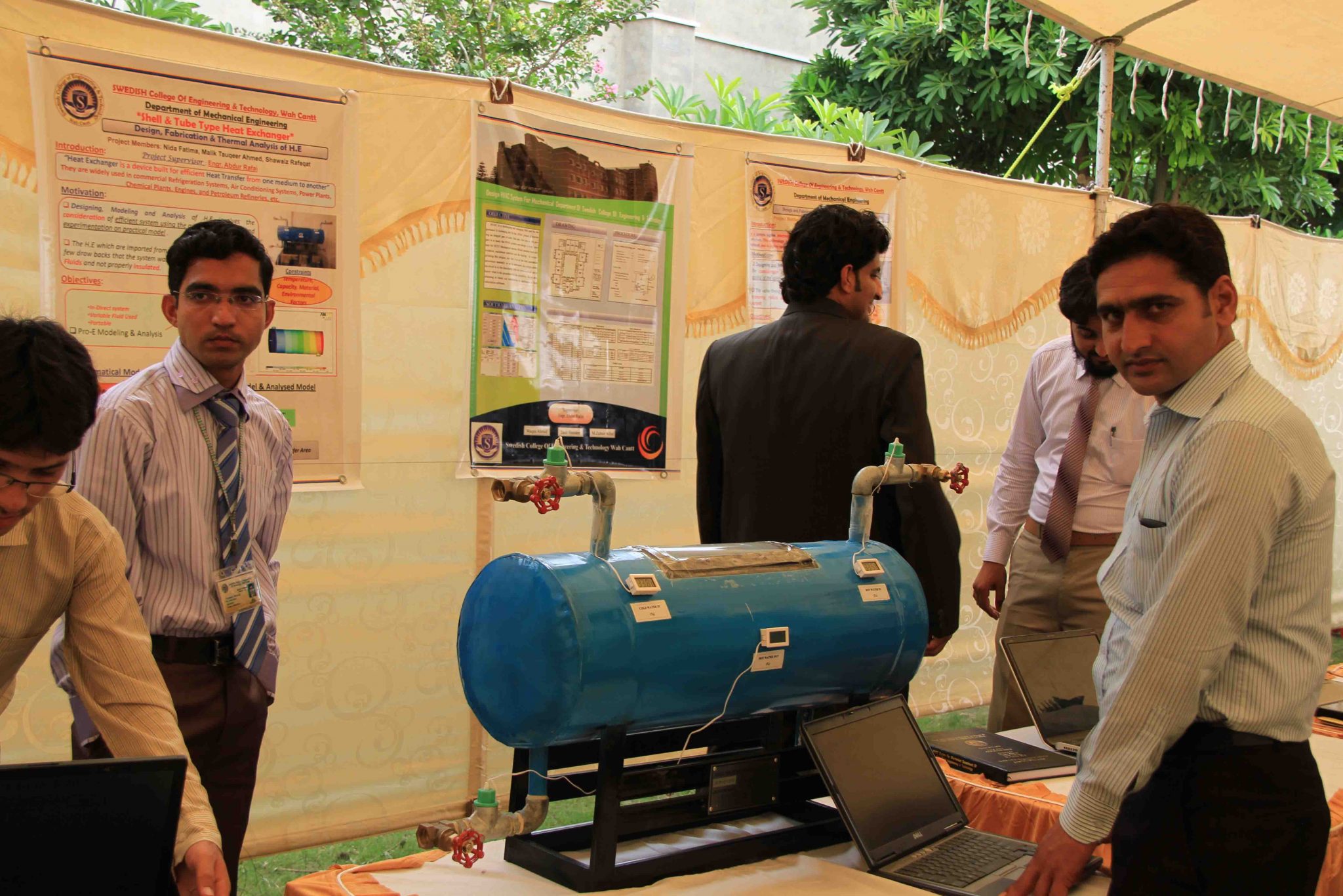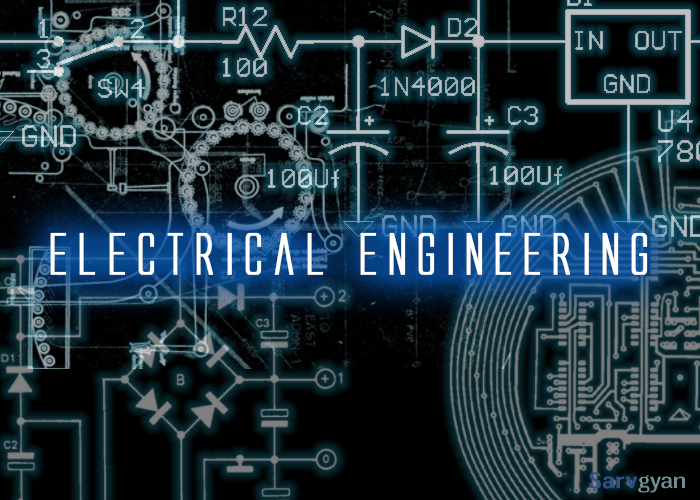The BS engineering in Pakistan has an extensive and stupendous career opportunity. There are many surpass universities in Pakistan which are offering numeral engineering disciplines in order to be a magnet for for the youth. Career After BSC Engineering in Pakistan Electrical Mechanical Civil Computer Science Aeronautical. The outsized number of proffered fields has permitted the numeral career options. Engineering is contemplated as a domain that ameliorates and perpetuates the livelihood and instigate the innovations in all spheres of life. An engineer having the productive adroitness and strength of mind the country to the brighter and vivid hereafter. In Pakistan, BS engineering is a 4 year program of Bachelors sciences’ degree in the field of engineering. A few of the most studied engineering fields in Pakistan now days are; Mechanical engineering, Software Computer engineering, Civil engineering, Space and Technology engineering, Intercommunicating engineering, material engineering.
CIVIL ENGINEERING:
Nature of Work
A civil engineer is responsible for planning and designing a project, constructing the project to the required scale, and maintenance of the product. A civil engineer requires not only a high standard of engineering knowledge but also supervisory and administrative skills. The planning part of their work involves site investigation, feasibility studies, creating solutions to complications that may occur and the actual designing of structures. They have to work with the guidelines of the local government authority and get plans approved by the relevant authority. They may prepare cost estimates and set construction schedules. Construction work involves dealing with clients, architects, government officials, contactors and the supervision of work according to standards. Their work also involves the maintenance and repair of the project.
Specialisations
The major specialisations within civil engineering are structural, water resources, environmental, construction, transportation, geo-technical engineering etc. On most projects, civil engineers work in teams or in coordination with many other engineers. They can find work as a supervisor of a construction site or a managerial position or in design, research as well as teaching in government services or private concerns. They can also work as independent consultants.
Education & Eligibility
A bachelor’s degree in Engineering is the minimum requirement to become a qualified civil engineer. A post graduate degree is required for research or teaching posts and an additional degree in business administration is desirable for management positions.
Engineering courses are available at two levels. There are the degree and postgraduate degree courses offered by the engineering colleges and universities, and, the diploma courses available at polytechnics.
The basic eligibility criteria for a B.Sc. / BE in Civil Engineering is F.Sc. or equivalent examination, with high percentage of marks in Science subjects (Physics, Chemistry and Mathematics).
Selection
Selection to the graduate courses (B.Sc. / BE ) is based on merit i.e the marks secured in Metric, F.Sc.(Pre-Engineering) or equivalent and through entrance exams.
Duration
B.Sc. / BE courses are of 4 year’s duration. The B.Tech and diploma courses are of 2-3 year’s duration
Abilities Required
A civil engineer needs to have a sharp, analytical and practical mind and give attention to details. Excellent communication skills is a necessity and he should have the ability to get along at all levels, as part of a team. He should be good at organizing and solving problems. He may need to work under pressure and have the ability to keep calm during crisis.
He needs to know about surveying methods, environmental issues like whether the area is susceptible to tremors or has sandy soil etc, properties of building materials like its load bearing strength, resistance to fire and corrosion etc. Besides having a good technical designing knowledge conceptualising structures, they should be computer literate in order to use design, drawing and word processing software. Civil engineers need to know building and safety regulations, local authority and government regulations, acceptable standards for construction and how to draw plans.
Job Prospects
Civil Engineers can find job in Government departments, private and public sector industries, research and teaching institutions etc. Job opportunities for civil engineers are expected to increase as fast as the average for all jobs, although the construction industry is vulnerable to fluctuations in the economy.
Civil engineers will always be needed to maintain and repair existing facilities and structures and to construct new ones. After doing B.Tech, one can look for jobs in road projects, building work, consultancy firms, quality testing laboratories or housing societies. The experts say there is a high demand for experienced civil engineers in developed countries.
Civil engineers are employed in all the major construction projects carried out by the provincial or federal government, the railways, private construction companies, military, engineering services, consultancy services etc.
Civil engineering graduates can also go in for research and take up teaching or they can open their own independent consultancy services.
MECHANICAL ENGINEERING:
Nature of Work
In a way, mechanical engineers are involved in creating the future. They are the driving force behind many of our technologies and industrial processes including innovative products like mobiles, PCs and DVD etc in our modern world. The work of a Mechanical Engineer can be extremely challenging and fulfilling, requiring IT, design and analytical skills together with an ability to work as a team. As their work involves production, transmission and use of mechanical power and heat, they have to analyse the different materials used for the machines and their tolerances, investigate the different energy sources and the power they generate and the design problems if any. When designing and making a commercial product they have to take into account all the business and marketing aspects to make sure that the product is affordable. They share interests with many other engineers like Civil Engineers in structures and stress analysis; Electrical engineers in electronics, computing and control theory; Aeronautical Engineers in fluid flow and turbomachinery etc and also design tools needed by other engineers for their work. They work as part of a team with other engineers as well as financial, business and management professionals on a project together. Mechanical Engineers are also responsible for maintenance and repair of the devices. Care has to be taken that the plants give maximum output and the machinery is properly maintained.
Specialization
The specialisations include in areas like thermal engineering, design, and production engineering etc. Mechanical engineers work mainly in manufacturing firms. They can find work in administrative and managerial positions in government departments or public and private sector industries or do research as well as teaching in Research and teaching institutes. They could also opt for technical sales / marketing or work as independent consultants.
Education & Eligibility
To become a mechanical engineer one should have a graduate degree B.Sc / B.E or postgraduate degree M.Sc / M.E or at least a diploma in (DAE / B.Tech) mechanical Engineering.
The basic eligibility criteria for a B.Sc / BE is F.Sc(Pre-Engineering) or equivalent examination, with Physics, Chemistry and Mathematics. After the bachelor’s one can go in for a post graduate degree. The postgraduate course generally offers specialized training in thermal engineering, design, and production engineering. Post graduate degrees are essential for most teaching posts and positions in management and an additional degree in business administration is desirable for management positions.
Selection : Selection to the graduate courses B.Sc / BE is based on merit i.e the marks secured in Metric and F.Sc and through entrance test.
Duration : B.Sc / BE courses are of 4 years’ duration. The diploma courses in polytechnics are of 2-3 years’ duration.
Abilities Required
Mechanical engineering technicians need to have excellent mechanical engineering skills, as well as technical drawing and computer skills for designing machines and equipment. It requires IT, design and analytical skills together with an ability to conceptualize structures. They must have numeric skills as math’s is an important tool, an inquisitive and logical mind to make connections between ideas and handle abstract concepts, creative and innovative ideas to find solutions to problems which may need a new perspective, good practical skills to apply math’s and science to real problems. Organising ability, practicality, ability to get on well with people of all types, ability to keep calm under pressure and flexibly to work in a multi disciplinary area are an asset in the field.
Job Prospects
Mechanical Engineering finds applications in all fields of technology. They could work in many industries including private or public sector industries of various types, and their work varies by industry and function. With the rapid rate of expansion in the industrial sector, the employment potential for mechanical engineers is very high.
These engineers are required in automobile, chemical, electronics, steel plants, oil exploration and refining, technical wings of armed forces, space research organisation, etc. Candidates with post graduate degree or an additional management degree could find work in administrative and managerial positions in government departments or public and private sector industries or do research as well as teaching in Research and teaching institutes. They could also opt for technical sales / marketing or work as independent consultants. Several government departments including Telephone, Defense, and PWD, employ mechanical engineers. Aeronautical, agricultural, automobile, chemical, and power plants, as well as the railways, need mechanical engineers to design and maintain their machinery.
Mechanical Engineering graduates has several job opportunities in Marine engineering. After undergoing a basic pre sea training or studying marine engineering or nautical science course, they can join as engine cadets, marine engineers or navigating officers. Mechanical Engineering graduates can also opt form.Sc / M.E programmes in Marine engineering, Petroleum engineering, Aerospace/ Aeronautical engineering or Nanotechnology.
Career After BSC Engineering in Pakistan Electrical Mechanical Civil Computer Science Aeronautical
ELECTRICAL ENGINEERING:
Nature of Work
Electrical engineers design and develop electrical systems, research new and innovative designs and system, supervise and plan manufacturing process of high end electrical systems. This role provides a number of challenges ranging from problem identification and the selection of appropriate technical solutions, materials, test equipment and procedures, to the manufacture and production of safe, economical, high-performance products and services.
Electrical engineers work to combine technology with creativity, taking ideas and turning them into reality. In fact, electrical engineers are involved in the practical application of electrical energy.
Electricity has become the basic need for survival. From household to industrial plants, communication and satellite navigation system, electronic equipment, computers etc., all require electricity. Hence electrical engineering which deals with study and application of electrical systems is widely applicable in each and every aspect of our daily life. Virtually every industry utilizes electrical engineers, so employment opportunities are extensive.
Education & Eligibility
Educational : A bachelor’s degree in Engineering is the minimum requirement to become a qualified electrical engineer. A post graduate degree is required for research or teaching posts and an additional degree in business administration is desirable for management positions.
Engineering courses are available at two levels. There are the (B.Sc./BE) degrees and postgraduate (M.Sc./ME) degree courses offered by the engineering universities and colleges and the diploma courses (DAE/ B.Tech) available at polytechnics.
The basic eligibility criteria for a B.Sc./ B.E in Electrical Engineering is F.Sc. or equivalent examination, with high percentage of marks in Science subjects (Physics, Chemistry and Mathematics). While for post graduate programs, one should have done B.Sc./B.E/ in electrical engineering. The program can either be studied alone or can be combined with electronic engineering. One can even opt for super specialty or Ph. D program in electrical engineering. For the purpose, the person should have done M.Sc./M.E in electrical engineering or electrical and electronics engineering.
Selection : Selection to the graduate courses (B.Sc./B.E) is based on merit i.e the marks secured in Metric and F.Sc. and through entrance test.
Duration: B.Sc./B.E courses are of 4 year’s duration. The diploma and B.Tech courses are of 2-3 year’s duration. Post Graduate course M.Sc./M.E is of 2 years duration.
Abilities Required: An electrical engineer need to have a sharp, analytical and practical mind and attention to details. They should be able to grasp and adapt to new and changing concepts. Good communication skills are also important to communicate their ideas to others in their field. He should be good at organizing and solving problems. He may need to work under pressure and have the ability to keep calm during crisis. Along with various other personal attributes one must also have dedication and commitment towards the profession.
A successful electrical engineer possesses not only an understanding of his area of concentration, but also a broad grasp of engineering in general. An electrical engineer is expected to have detailed knowledge of electrical networks, electrical energy converters and equipments that uses electromagnetic field theory, electrical energy distribution systems etc.
Job Prospects
Scope in electrical engineering lie in the areas of generating electricity, its distribution and transmission. As everything from house to industry requires electricity to function, there are tremendous career prospects in this field in Pakistan as well as in other developed countries across the world. Electrical engineering has a wide scope of applicability and it varies depending upon different needs.
Different types of employers offer jobs to electrical engineers. Employers range from computer-technology corporations and chemical companies to power and telephone companies. Both small and large companies in the private sector and the government sector offer placement for electrical engineers. Electrical engineers can find employment in Electrical equipment and systems manufacturing companies, Power generation and transmission, Telecommunication, Railways, IT industry, Health care equipment manufacturing industry, public sector industries like petroleum, steel and chemical industry, Research and design etc.
Career Options
Electrical graduates are employed in Electricity companies and large industries as engineers and managers, responsible for installation, maintenance, operation of power handling equipments and systems. Industries manufacturing large electrical machines and equipments employ engineers in design, production and testing. Electrical engineers also find employment in atomic power plants, hydroelectric power plants as well as thermal power plants. Many electrical engineering graduates opt for careers in the food, pulp and paper, chemical, aircraft and automobile industries.
Educational Institutions and Research establishments recruit electrical engineers as faculty and scientists. One can also do research work in this field by joining research labs and institutes. Teaching career is also rewarding. They can join an engineering college/university as a full time or part time lecturer/professor. They can also enter into self employment by starting own ventures.
As an Electrical Engineer, entry for junior posts in the Government departments is by direct recruitment through advertisements in newspapers. Selection to Gazetted posts is through competitive examinations (CSS).
Young engineers have chances in the Defence Services also. For selection into the Defence Services- Pak Armed Forces (Army, Air Force, Navy), applications are invited through National dailies.
The article is enchanted with some of the conventional as well as non-conventional career choices for enrapturing our readers
- Educational research institutes and Teaching are one of the edifying and beneficiary careers in Pakistan. Engineering Institutes always solutate the talented and experienced engineers as professors to serve up the under-graduate with their skills.
- Mechanical Engineering is all about the electronics and electricity, the scope for the particular engineering is most excellent in electricity companies and the companies that are engross in installing and maintaining the power plants and equipments.
- Software houses are the rising line of business in Pakistan. The software engineers and computer engineers have also options for working independently devoid of any affiliation with any corporation. They have open choice of web and software designing.
- The Civil engineer has a scope in private and government sectors as well. Some of the career options for civil Engineer are: project manager, researcher, deputy engineer and assistant manager
- Engineering has a vast importance in country’s defense sector. The metallurgy and nuclear energy has possibility of being part of forces. There they can work in maintenance of nuclear plants; they can also work as researcher.
PEC, Pakistan Engineering Council, is the Engineering professional authority that registers and vouchsafes the certificates to the graduated students of authorized Institute. The dominant areas for employment after BS Engineering are in Government departments, private sectors, consultancy farms, educational fields, and transportation sectors. The engineering career requires the inventiveness, persistence and tenacity to do new. The Salary depends on the ideas and experiences of the engineer. The career of engineering is all about one’s own uphill struggle and competence. For the Further Details Regarding Career After BSC Engineering in Pakistan Electrical Mechanical Civil Computer Science Aeronautical you must read our next article. The people should stay connected with us for the updates and information.
 EntireStudy.com Education News Admissions
EntireStudy.com Education News Admissions










i have completed bsc electrical engineering.and now seeking for job
can you answer me ?
what is the scope of electrical engineering in the world.
please reply